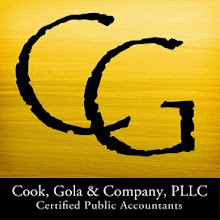As a sports fan and a business blogger, it’s always interesting to try to find ways to merge my two interests. Now, the NFL is providing me with a golden opportunity to do just that.
Since we are in an area without a NFL team, it’s likely that the average sports fan hasn’t heard of the NFL’s “blackout rule”. Since 1973, there has been a clause in the NFL’s television deal that allows it to block the local broadcast of any game that isn’t sold out 72 hours before kickoff. The concept behind the blackout rule was to encourage people to get out and go to the game instead of staying home if there were tickets available and to encourage sellouts of its games.
This rule hasn’t really posed a problem for the league until now. The vast majority of NFL games in recent seasons have been sellouts and not subject to blackout. The New York Times reports that only nine games were blacked out last season (probably Lions games) and that over the past four seasons, only 5 percent of all games were blacked out.
Times, though, are changing. It’s no secret that the economy is struggling, and the average cost of attending an NFL game has skyrocketed in recent years. According to Sports Illustrated, the average ticket to an NFL game will cost $75 this season. For a family of four, with parking and snacks, you could be looking at over $400 to attend a game. By comparison, in 1973 when the rule was passed, a Super Bowl ticket cost just $15!
Between the rising cost of attending a game and the economic troubles, the number of games facing blackout is expected to skyrocket this year. NFL insider Mark Maske writes that the league projects the blackout rate this season could be as high as 20 percent! This past weekend, three games (including the Raiders’ Monday night game) were nearly blacked out, each selling out just before the league deadline....and that was opening weekend!
Here is where we tie this story back to the business world. The NFL’s response to these reports is that they will not review their blackout policy at this time, citing that they “do not react to short term situations”. This reaction strikes me as arrogant beyond belief and in violation of several management concepts that we try to teach our clients.
When we consult with small business clients, we teach them that their mantra should be to gauge and respond to their customers’ needs. No business will last long with the attitude that “this is how we do it and if you don’t like it go somewhere else”. Yet this seems to be exactly what the NFL is doing with their response (or lack thereof) to this situation. Sure, the NFL isn't exactly a "small business", but no company can go on forever biting the hand that feeds them.
We also take issue with the league’s statement that they do not respond to short term situations. While it’s true that having a long-term vision is vitally important to the success of a business, you cannot focus entirely on the long-term and ignore important short-term issues. In the information age, the ability of a company to react and adapt to current market pressures is extremely important. Without a successful short-term policy, there might not be a need for a long-term plan.
I’m not predicting “gloom and doom” for the NFL. However, judging from the number of results to a quick Google search of “NFL Blackout”, the amount of negative toward the league's policies is staggering. The NFL is still stinging from the negative publicity over not being able to get their NFL Network onto some of the nation’s largest cable companies, so this issue really comes at the wrong time for them. Simply put, they need to respond appropriately to this issue.
No matter how popular the NFL has become, all it can take is one issue like this to kill that popularity – just ask Major League Baseball after the 1994 strike. Prior to the strike, baseball was "America's passtime", a mantle that football was able to take from them after 1994. With ill-advised decisions on issues like the blackout rule, I have to wonder - is the NFL on their way to giving it back?
--Dan Musick is the Tax Services Partner with Cook & Associates, a full service public accounting firm with offices in San Marcos and San Antonio, TX
How Much Risk Do Clients Need?
2 days ago



No comments:
Post a Comment